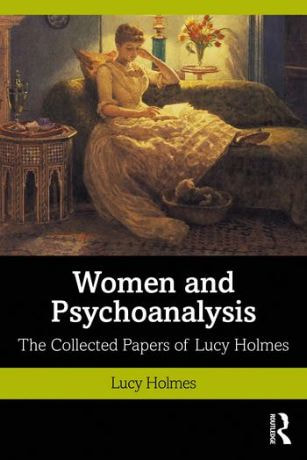
Women and Psychoanalysis:
The Collected Papers of Lucy Holmes (2020)
This remarkable collection charts the professional growth of one psychoanalyst from student to seasoned clinician to provide a guidebook for how psychoanalytic theory is conceptualized, created and tested in the analytic session. Specifically, the book traces the development of thinking on the place of women in psychoanalysis and how psychoanalysis has changed how it views and treats women.
Using the techniques of qualitative psychoanalytic research, Lucy Holmes presents new theories of female development grounded in drive theory and expands and enriches Freud’s phallocentric ideas about women. Validated by over 30 years of clinical experience with female patients, her work demonstrates how these theories affect women in analysis, in group and in their personal lives. Later papers focus on the process of psychoanalysis itself, using the laboratory of the analytic session to study how talking changes the neurological structure of the brain; to reflect on the concept of "cure" in psychoanalysis; and finally to tackle the tenacity of the repetition compulsion.
Exploring topics across women’s lives, such as childbirth, anger, identity, death, humour, leadership and madness, this unique collection of papers is ideal for practicing clinicians and theorists of psychoanalysis.
[Amazon.com]
The Collected Papers of Lucy Holmes (2020)
This remarkable collection charts the professional growth of one psychoanalyst from student to seasoned clinician to provide a guidebook for how psychoanalytic theory is conceptualized, created and tested in the analytic session. Specifically, the book traces the development of thinking on the place of women in psychoanalysis and how psychoanalysis has changed how it views and treats women.
Using the techniques of qualitative psychoanalytic research, Lucy Holmes presents new theories of female development grounded in drive theory and expands and enriches Freud’s phallocentric ideas about women. Validated by over 30 years of clinical experience with female patients, her work demonstrates how these theories affect women in analysis, in group and in their personal lives. Later papers focus on the process of psychoanalysis itself, using the laboratory of the analytic session to study how talking changes the neurological structure of the brain; to reflect on the concept of "cure" in psychoanalysis; and finally to tackle the tenacity of the repetition compulsion.
Exploring topics across women’s lives, such as childbirth, anger, identity, death, humour, leadership and madness, this unique collection of papers is ideal for practicing clinicians and theorists of psychoanalysis.
[Amazon.com]
Reviews:
This collection of chapters, written over a period of twenty years, provides a vivid depiction of the psychoanalytic experience as a laboratory, where all sorts of questions about human development, the therapeutic value of talking, and the nature of cure can be answered by the analyst who really listens. --Vicki Semel, Executive Director,
Academy of Clinical and Applied Psychoanalysis |
Lucy Holmes’ papers on women pick up where Freud left off on femininity, throwing light on the 'dark continent' of the female mind. --Lucie D. Grosvenor, LCSW,
Executive Director Emerita, Psychoanalytic Psychotherapy Study Center |
